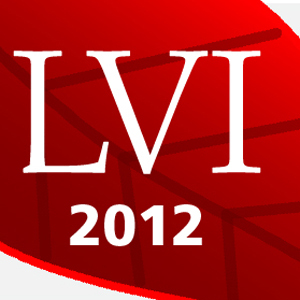 I had the great privilege of attending the Law via the Internet conference this week in Ithaca, NY. This conference brings together people from all around the world involved in putting law online – LIIs, academics, non-profits and even some civic minded hackers. For me, this was one of those truly transformative conference experiences and it will take me a while to truly absorb everything I was exposed to, plus I really need to go back and review the presentations that I didn’t get to see. They’ll all be posted eventually on the LII site linked above and I strongly encourage you to check them out. What follows is a attempt to coalesce some of the themes and thoughts generated by LVI.
I had the great privilege of attending the Law via the Internet conference this week in Ithaca, NY. This conference brings together people from all around the world involved in putting law online – LIIs, academics, non-profits and even some civic minded hackers. For me, this was one of those truly transformative conference experiences and it will take me a while to truly absorb everything I was exposed to, plus I really need to go back and review the presentations that I didn’t get to see. They’ll all be posted eventually on the LII site linked above and I strongly encourage you to check them out. What follows is a attempt to coalesce some of the themes and thoughts generated by LVI.
…not a mirror to reflect reality but a hammer to shape it.
I saw quite a few projects that could best be described as “early beta” or “proof of concept.” Despite the fact that the Legal Information Institute has been around for 20 years, we’re still trying to figure out the best ways to get law online. It’s so much more complicated than just getting the raw text of the law on a webpage.
I don’t know about information, but data definitely wants to be free. And law is data. And personally, I will gladly pay someone to turn that data into usable information. Most of the attendees at LVI were interested in releasing data/law into the wild in a format that can then be turned into information. Some are leaping ahead to making it into information, but for the most part, it’s still at the stage of trying to wrest it from the government. Here in the United States, where law is publicly owned property, it will happen sooner or later.
This is why I was somewhat disappointed to not see any representatives in attendance from the Big Law Publishers. (I did meet someone from Wolters Kluwer, but that’s it. It’s entirely possible reps from Thomson, Lexis and Bloomberg were there, but they were quiet. ) Free law will never be a direct competitor to Big Law Publishers. It doesn’t want to be. Free law is in the data business and Big Law Publishers are in the information business. Granted, once legal data becomes free, there will be individuals that will manipulate it into usable information for free, but for the most part, especially in the legal practice world, there are always going to be lawyers that will prefer to pay for information, at least for another generation or so. I truly believe that Big Law Publishers will benefit from this new era as civic minded data wranglers will do a lot of the R&D for free, which can then be adapted and put into a nice shiny commercial package.
Law is data, but data is not law.
It’s only been in recent weeks that the idea that law is just another type of data that can be manipulated and extracted into information has really sunk into my brain. For an example of this, check out Fastcase’s Timeline which uses data visualization as supplement to search results. There were actually several examples of these data manipulations throughout the conference, and while they were exciting, they also made me a little nervous. Especially when presenters started mentioning that they were “cleaning up” and “normalizing” some of the data, and by that they meant fixing punctuation and changing case headings.
Law is not like any other data set. When the interpretation of a contract or piece of legislation can turn on the placement of a comma, it’s critical that we not mess with the content that is created by the originating bodies. If the way it comes out makes it hard for you to manipulate it, well then you need to find a new way to process.
I guess it’s because I’m a librarian, but I still have a strong belief that there needs to be a “god copy” of every piece of law. The immutable, authenticated and preserved piece of law that we can all go back to and say “this is the official copy, it contained original intent, any discrepancies lose out to this one.” This is an idea that is not well received by many in the free law business. The general feeling that I got from people when talking about it was that there is no such thing as permanence – paper degrades, microfiche melts, even stone tablets eventually break. Every storage format has it’s faults, so why do we stick with the least user friendly and accessible ones? Clearly this is an area that will require more collaboration and work to ensure that all parties are satisfied with the stability and accessibility of legal information.
Intermediaries in the time of disintermediation
We live in the age of disintermediation. I mean, that is really exactly what Law via the Internet is all about – making these large datasets of law available to whomever wants it without having to go through commercial publishers. And while there are a large number of data wranglers out there who are quite happy with just access to data, that’s really not enough for most people. There’s an even greater need out there for this data to be transformed into meaningful information. That’s why we’re seeing communities develop on Data.gov or pro se form creation tools like A2J Author (which my boss demo’ed at LVI) – experts are needed to makes this information flood manageable. Rather than killing libraries and ending the need for librarians, the advent of open law and information will make them more necessary than ever.
On a personal note, I did wonder at times “what the Hell am I doing here?” I am not a programmer. I don’t work for a LII or the government. Some would say I’m not a librarian anymore. I basically know just enough about all of the relevant issues to be dangerous. So I’m not entirely sure what my role in the Open Law movement will be. It may be as just an enthusiastic cheerleader. I do seem to know and get along with people in all of the various involved parties, so perhaps I can be an intermediary of some sort and help foster collaborations and understanding between the various camps. I am happy to do whatever I can to help – access to legal information is a basic human right. The faster we can all work together to make true, meaningful and free access a reality, the better off humanity will be.
….
So those are just my rough impressions from the conference. I do want to thank the Legal Information Institute for hosting us and wish them a very happy 20th birthday. May you have many more!


As you are an information professional i am surprised and disappointed that in your epigram you deleted the subject of Bertold Brecht’s quote (Art) and the you did not credit him for the quote.
I’m an information professional, but I’m also a writer. Removing the “art” as the subject of the quote was a deliberate choice to reflect the idea that the work being done by LVI will shape reality and the future. As for not attributing it, I assumed it was so well known that it wasn’t necessary, but it wasn’t my intention to pass the thoughts of Bertold Brecht as my own. If it was, I wouldn’t have approved your comment. Hopefully that assuages some of your disappointment and the healing can begin.
re “God copy”….absolutely! But many challenges need to be overcome – mostly in the unhelpful way we computer science types tend to frame the problem.
See http://seanmcgrath.blogspot.com/2010/09/pssstthere-is-no-such-thing-as.html
Sorry I missed the conference. My paper didn’t make it. I’ll try again next year 🙂
Regards,
Sean McGrath